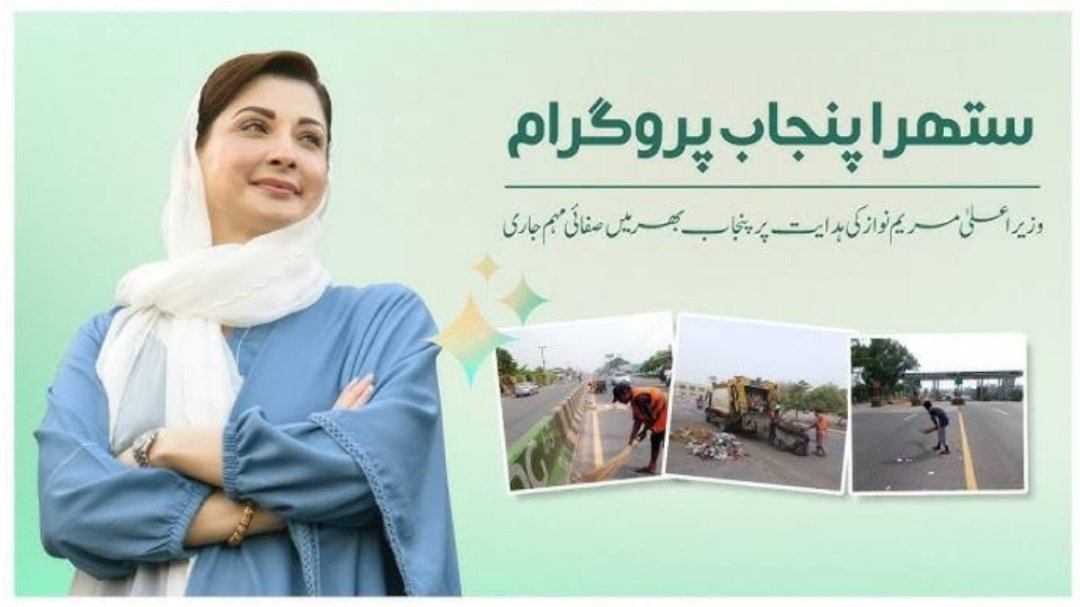The Suthra Punjab Program is a new initiative launched by the Punjab government to improve trash management and cleanliness in the province. To oversee the program, a dedicated control room has been established at the provincial civil secretariat. Zeeshan Rafiq, the local government minister, is in charge of this project to make sure it runs well. The goal is to ensure improved garbage disposal practices while simultaneously making streets, towns, and cities cleaner. This initiative is a significant step in making Punjab’s environment clean and healthy for its citizens.
Key Features of the Suthra Punjab Program
| Feature | Details |
|---|---|
| AI-Based Monitoring | Tracks waste management efforts |
| Tehsils Covered | 110 tehsils outsourced |
| Jobs Created | 88,000 job opportunities |
| Future Goal | Energy from waste management |
Launch of the Suthra Punjab Program
The Suthra Punjab Program was launched in a grand ceremony by Zeeshan Rafiq. The program is a first of its kind, focusing on proper waste collection, recycling, and safe disposal. To ensure effective coverage, 110 tehsils out of 149 have been outsourced for waste management in the first phase. This includes garbage collection from homes, cleaning streets, and de-silting. The initiative is a big step toward making Punjab a clean and sustainable province.

Use of Artificial Intelligence
This program uses advanced Artificial Intelligence (AI) technology for monitoring and management:
- AI tracks how waste management companies perform.
- It helps the control room evaluate cleanliness levels in real time.
- Complaints from citizens are resolved quickly using AI.
- The system increases efficiency and reduces mistakes.
By using AI, the government aims to make the program transparent and effective, ensuring all goals are met.
Local and Provincial Efforts
There are four levels at which the program functions: Tehsil, District, Divisional, and Provincial. A monitoring system is in place at every level to handle problems locally. The Local Government Minister has underlined the necessity of coordination between contractors, district administrations, and citizensThe program’s dedication to increasing local employment is demonstrated by the 88,000 jobs it has already produced in the first phase. Every sector receives equal attention and problems are resolved swiftly because to this multi-level strategy.
Challenges in Waste Management
Punjab produces around 60,000 tons of waste daily, but a large part of it was not managed properly before. The Suthra Punjab Program solves this issue by:
- Outsourcing operations in 110 tehsils.
- Buying 25,000 new vehicles and machinery for cleaning.
- Improving the Lahore Waste Management Company (LWMC) to handle urban waste.
- Building proper dumping sites in every tehsil.
The program also plans to generate energy from waste in the future, making waste management sustainable.
Public Cooperation and Accountability
The program’s success depends on public participation. Citizens can report cleanliness issues through a mobile app, ensuring quick action. Key features include:
- A penalty system to ensure complaints are addressed on time.
- Community involvement in maintaining cleanliness.
- Continuous feedback to improve services.
Public cooperation will ensure the program runs smoothly and achieves its goal of a clean Punjab.
Conclusion
The Suthra Punjab Program is a revolutionary step toward improving waste management in the province. With AI technology, job creation, and active public involvement, the program aims to make Punjab cleaner and healthier. The establishment of control rooms and structured operations ensures transparency and efficiency. Public support is vital for the program’s success, and it promises long-term benefits for everyone in Punjab.
Also Read :Karobar Card Loan Scheme: Helping Small and Medium Businesses Grow
FAQs
What is the purpose of the Suthra Punjab Program?
The program aims to improve cleanliness and waste management in Punjab.
How is AI used in the program?
AI monitors waste management performance, tracks progress, and resolves complaints in real time.
How many jobs has the program created?
The program has created 88,000 jobs in its initial phase.
How can citizens participate?
Citizens can use the mobile app to report sanitation problems and ensure accountability.
